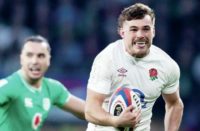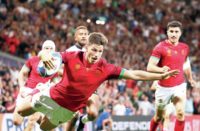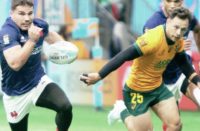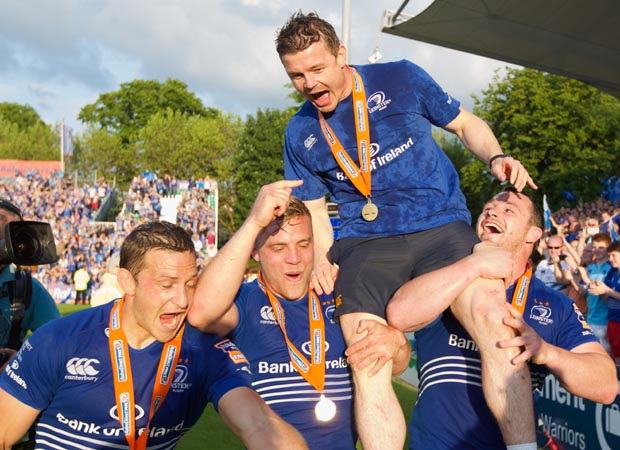 Rugby's oldest maxim is probably “what goes on tour stays on tour” and, as an ‘old school' player par excellence, Brian O'Driscoll was never going to dish the dirt in his farewell autobiography The Test.
Rugby's oldest maxim is probably “what goes on tour stays on tour” and, as an ‘old school' player par excellence, Brian O'Driscoll was never going to dish the dirt in his farewell autobiography The Test.
You will look in vain for Kevin Pietersen-style rants, finger pointing and blame shifting, nor will you be invited to relive volatile dressing room bust-ups and on the field vendettas a la Roy Keane. Thank God.
The Test is much more nuanced; insight rather than revelation, quiet regret rather than accusation. You have to read between the lines to detect when O'Driscoll is having a pop and sometimes his view on somebody can best be gauged by the fact that they barely feature in the narrative at all. The entire Tana Umaga-Keven Mealamu incident and indeed the Lions 2005 tour in general scarcely makes eight pages in 400-page book.
No modern-day sportsman in any arena, in my experience, had the ability to move on quicker from the highs and lows than O'Driscoll and his book reflects that very well.
He had little truck with the twin imposters. He didn't linger or dwell, a sense of perspective and ambition always kept him moving relentlessly forward, so much so that he won 141 Test caps, the most in rugby history, although next year Richie McCaw will probably ease past that total.
Personality-wise I would say they are nigh on identical.
The thing about O'Driscoll which sets him apart from the wailing Pietersen and many other score-settling sportsman, is that he understands and accepts that failure – individual and collective – is a part of sport.
For large chunks of his career the most gifted European rugby player of his generation had to routinely deal with failure and defeat and throughout showed a perspective.
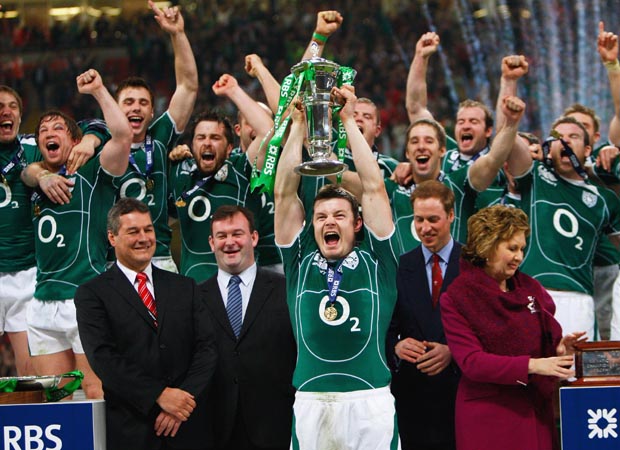
Mighty Leinster were actually chronic underperformers – except in various Dublin bars – until the second half of his career when although, not quite taking the pledge, they got their act together and made up for lost time with three Heineken Cups.
Ireland made good strides in the Six Nations but misfired with predictable regularity in all four World Cups he played in. Meanwhile O'Driscoll went on four Lions tours but only tasted a series victory on that final trip to Australia and when that moment came he was sitting in the stands in a collar and tie having been dropped. The life of Brian was not a bed of roses.
If he was so inclined you suspect O'Driscoll could air plenty of grievances and deliver some withering broadsides on players and coaches who didn't step up to the plate and match his standards.
Rugby, however, remains the ultimate team game and the distinct absence of back-biting, lid-lifting, glory-hogging, whinging autobiographies is one of the pieces of evidence I would cite as evidence. Of course there are strong emotions in the background, rows, clashing personalities and harsh industrial language are often the rule rather than exception in the privacy of changing rooms and training pitches. But what goes on tour still stays on tour.
And this is why. No individual can win a rugby match on his own and it follows therefore that nobody is in a position to get above himself and distribute blame and censure with any conviction. It's rugby's enduring failsafe and even amidst the madness that sometimes envelopes the modern game it always seems to kick in.
So, ultimately this book is about Brian O'Driscoll and nobody else which might seem like stating the bleeding obvious but autobiographies tend to be anything but these days.
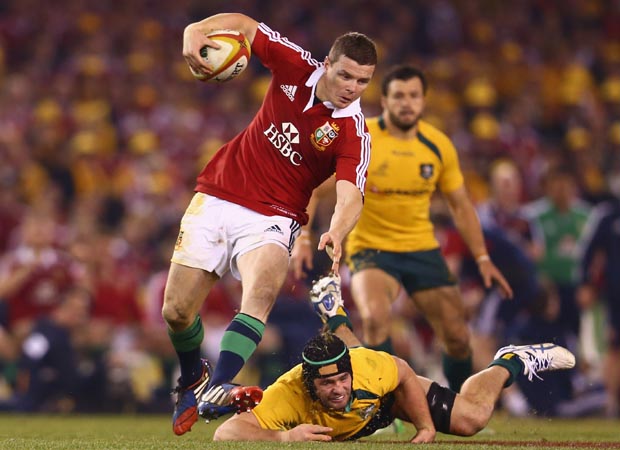
And what do we learn? What insights do we glean? Well first of all that he's as blind as bat – 50 per cent less sight than lesser mortals – and only at the tail end of his career, when the eye surgeon finally allowed him to have laser surgery, was he ever able to see the scoreboard let alone those countdown clocks they hide in the corner of stadiums.
He could walk down Grafton Street blissfully unaware that gawping fans were eye-balling him because all he could see was blurry moving shapes.
At first glance – sorry – this seems remarkable for somebody who from the stands seemed to possess peripheral vision and extraordinary spatial awareness. But perhaps not. Didn't Australian opening batsman Bill Ponsford average 48 in Tests yet suffer from chronic green-red colour blindness? Ian Botham suffered from partial colour blindness as well.
Perhaps it fits into the overall picture. You adapt. O'Driscoll remorselessly played what was directly a couple of yards in front of him which was about the limit of his range. He concentrated doubly hard, giving and receiving passes, and his other senses became hyper sensitive.
He could read an opposition play from the angle of his opposite number's shoulders and the position of their feet while he could have his back to training at Leinster and identify who was kicking the ball simply by the sound of boot on leather. From Jonny Sexton, Rob Kearney and Jimmy Gopperth to prop Cian Healy launching steepling bombs.
Standing next to Leigh Halfpenny as he launched that 50-yard last second possible series winner in the second Test against Australia he knew from the moment the Lions full-back made contact that it would fall a yard short.
In a rare moment of defeat he admits he didn't even chase even though the ball, and match, was live until Australia successfully fielded the ball and cleared.
We also learned that the shoulder nerve injury which seemed to plague him from 2009 onwards was actually far more serious and eventually involved major neck surgery – a C5-C6 disc fusion – soon after he got back from the World Cup. In fairness it was pretty obvious from the way he could barely turn his neck at Press conferences to address a question that something much more serious was afoot.
At one stage, when contemplating the situation he decided that if he needed neck surgery, he would retire. But come the moment, ever the rugbyhead, he binned that option and took his surgeon on trust when he insisted there would be no further damage.
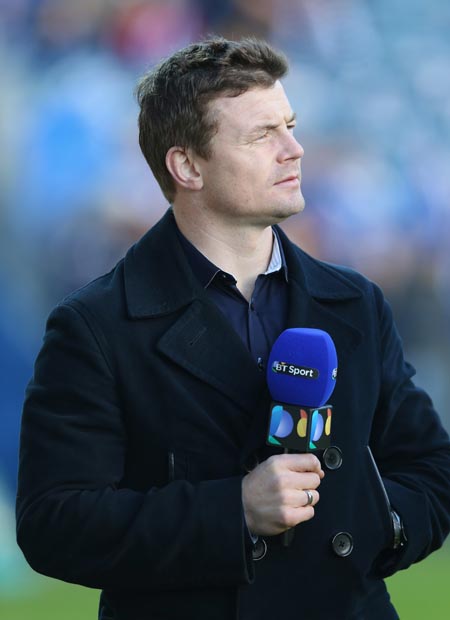
The fight to keep his battered body working was another constant in his career – and this book – which might take you by surprise given his longevity at the highest level. Even in 2005, when I ghosted his Year In The Centre, I can't recall a single interview when some humming electrode wasn't connected to some part of his body or he hadn't come straight from the treatment room laden with icepacks.
It was fascinating to pick up on a couple of little nuggets he throws out in the book. In the collars of their shirts the Ireland team wear sophisticated GPS trackers which among other things can measure the G-force encountered in a big tackle. Ten would constitute a massive hit.
When Scott Williams buried him with a monster hit in the sternum in Dublin earlier this year it registered an earth-shattering 27G. Completely off the scale. It should be noted however that it was Williams who went off with a busted shoulder and O'Driscoll who played on. Top players are effectively walking away from car crashes these days on an almost weekly basis.
Once the suppleness of youth disappeared it was a constant fight to keep his hamstrings from tearing, his back from going. Knees, ankles, shoulder (courtesy of Umaga and Mealamu), and neck all required surgery. Injections were frequently needed in his facet joints. Twice weekly pilates sessions just about kept him moving.
 I loved his description of warming up during his last season, comparing the process to trying to get a knackered old computer to boot up every morning while the young kids are straight into action on their tablets.
I loved his description of warming up during his last season, comparing the process to trying to get a knackered old computer to boot up every morning while the young kids are straight into action on their tablets.
His nickname was Fathead apparently, which is marginally preferable to Will Carling's Bumface. And that strange circle he made with his index fingers and thumb after the first two tries of his famous hat-trick in Paris were not a secret message to a girlfriend – as was always the accepted story – but a homage to a drinking buddy in Dublin who gloried in the name of “Big O”.
There are a fair few laughs, never more so than in a little scene straight out of Friends as he tried to “engineer” an accidental meeting in town with the glamorous Amy Huberman who he had seen on TV a couple of days earlier and had decided instantly was “the one”.
He wasn't wrong, though, and they are now married and expecting their second child next month. There is another little classic when both scream at a front page paparazzi picture of them leaving a reception.
Mrs O'Driscoll is mortified at a Marilyn Monroe moment as her knickers are displayed to the world but hubby doesn't even notice that.
All he can see is his double chin and wobbly jowls after an excessive summer holiday in Los Angeles. And there is genuine tragedy with the suicide of his best mate Barry Twomey in 2008, his housemate of four years and frequent drinking buddy and partner in crime when the lads hit the town in Dublin before marriage and kids beckoned.
You can feel the pain seeping out from the pages and it is around this time he sought out sports psychologist Enda McNulty for occasional therapy sessions. After a dip in form and motivation his attitude visibly hardened and underpinned the game for the rest of his career.
Just occasionally you sense he wants to let rip and tear into somebody or something but he steps back, just as he rarely got involved in any serious nonsense on the pitch despite provocation.
He never betrays the values imparted on him by his parents and family whose influence and guiding hand is everywhere you look in the book. That takes some doing in sport and life and, reading between the lines again, is probably the key to everything.
*This article was first published in The Rugby Paper on October 26


